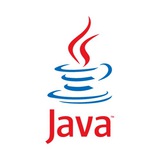tg-me.com/topJavaQuizQuestions/437
Last Update:
Understanding Java Stream vs. Flux from Iterable
🚀 In the world of reactive programming, it’s crucial to understand the difference between Stream and Flux when working with iterables. Here is what I found to be essential:
Stream:
- Synchronous API for processing collections.
- Operations (like map, filter) are executed one element at a time.
- Not designed for asynchronous or non-blocking operations.
Flux:
- Part of Project Reactor, designed for reactive applications.
- Allows handling of asynchronous data streams.
- Supports backpressure, meaning it can handle a large amount of data by controlling how much data is sent when.
Here’s a quick code snippet to illustrate the difference:
// Using Stream
List<String> names = Arrays.asList("Alice", "Bob", "Charlie");
names.stream()
.filter(name -> name.startsWith("A"))
.forEach(System.out::println);
// Using Flux
Flux.fromIterable(names)
.filter(name -> name.startsWith("A"))
.subscribe(System.out::println);
✨ Remember, choose the right tool for the job. Stream is great for simple operations, while Flux shines in reactive programming! Happy coding!
BY Top Java Quiz Questions ☕️
Warning: Undefined variable $i in /var/www/tg-me/post.php on line 283
Share with your friend now:
tg-me.com/topJavaQuizQuestions/437
